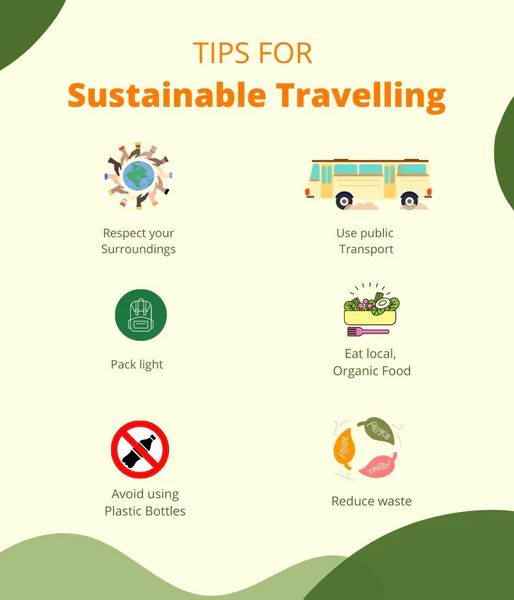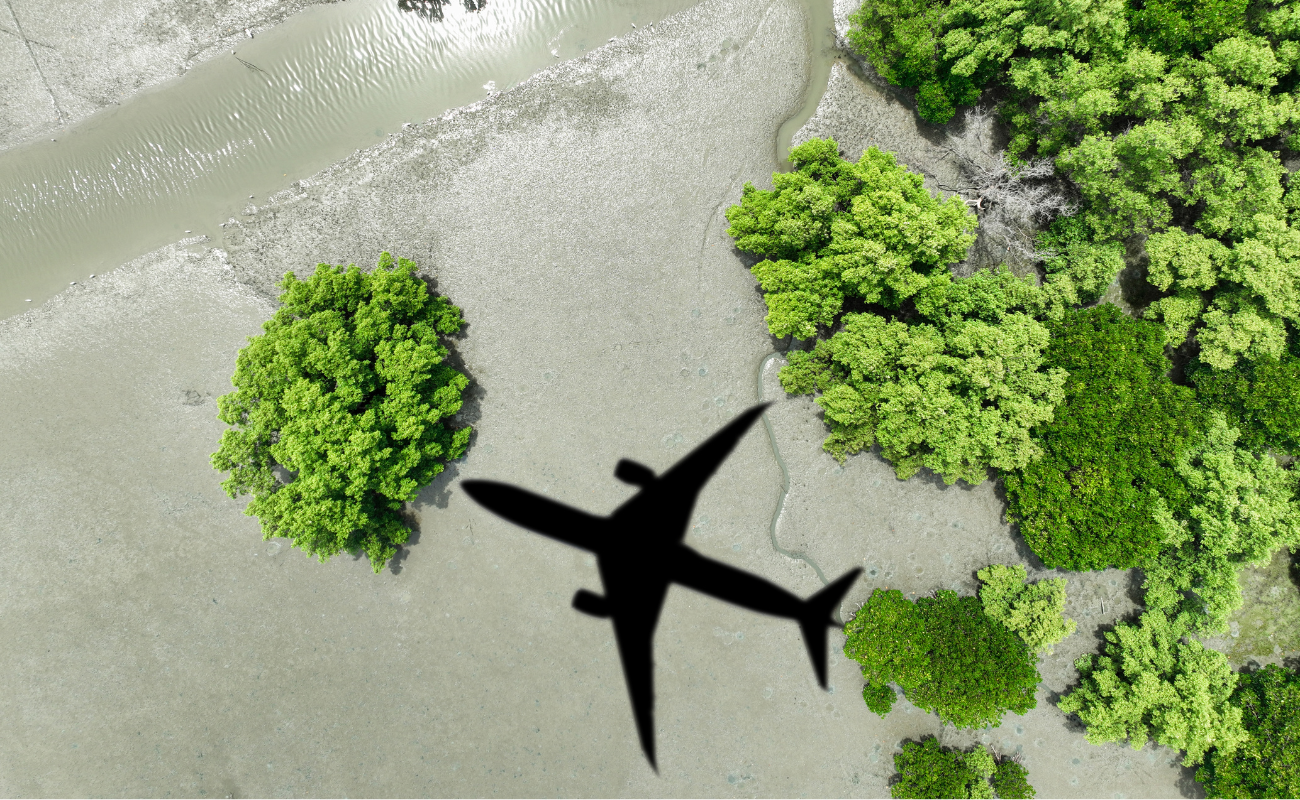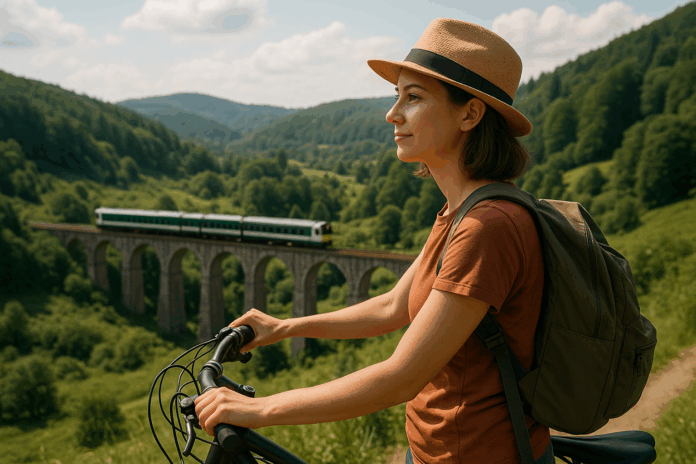Wander Wisely, Save Wildly: Your Guide to Sustainable Travel on a Budget ✨🌍
Hey there, fellow explorer! 👋
Ever felt that pang? You know, the one where you crave adventure, want to tread lightly on the planet, but your wallet gives you serious side-eye? 😬 Yeah, me too. For years, I thought “sustainable travel” was code for “luxury eco-lodges and carbon offset credits that cost more than the flight itself.” I pictured myself sipping artisanal kombucha on a solar-powered yacht… funded by selling a kidney. Not exactly accessible, right?
But guess what? I was so wrong. Sustainable travel isn’t about spending more; it’s about spending smarter and shifting your mindset. It’s about making choices that are kinder to the planet and often kinder to your bank account. It’s about connecting deeper, travelling slower, and finding joy in the simplicity. Ready to become a tree-hugging budget ninja? Let’s dive in!
Busting the Big, Green Myth: Eco ≠ Expensive 💸❌
Let’s address the elephant in the departure lounge first. The perception that sustainable travel has to cost more is pervasive. We see glossy ads for high-end eco-resorts and assume that’s the only way. But true sustainability often aligns beautifully with frugality. Think about it:

-
Flying Less = Saving More: This is the big one. Air travel is a major carbon culprit. Choosing fewer, longer trips over multiple short hops drastically cuts emissions and flight costs. That budget airline deal to Paris for a weekend? Factor in airport transfers, baggage fees, and impulse buys, and a slower regional trip might actually save you euros and CO2. Tools like the Skyscanner Carbon Calculator are eye-openers for comparing flight impacts.
-
Slower Travel, Richer Experiences: Rushing from landmark to landmark burns fuel (literal and metaphorical) and cash. Slowing down – taking trains, buses, biking, or even walking – reduces transport costs dramatically. You spend less on tickets, discover hidden gems off the beaten track, and actually savour the place. My most memorable European adventure? A month travelling almost exclusively by train using a Eurail Pass. The views? Stunning. The stress? Minimal. The cost per kilometre? Way cheaper than flights or last-minute car rentals. Check out Seat61.com – it’s the bible for train travel planning!
-
Consuming Less, Experiencing More: Sustainable travel naturally steers you away from rampant consumerism. Instead of buying cheap souvenirs destined for landfill, invest in experiences: a local cooking class, a guided nature walk, learning a few phrases in the local language. These create lasting memories without cluttering your home or the planet. Plus, they often put money directly into the local community.
Your Practical Playbook: Sustainable Savings in Action 📚✈️
Okay, enough theory! Let’s get down to the nitty-gritty. How do you actually make sustainable choices that save you money? Here’s your cheat sheet:
1. Master the Art of Getting There (and Around):
-
Train Over Plane (When Possible): For regional travel, trains are often comparable in time (door-to-door!), significantly lower in emissions, and surprisingly scenic. Booking in advance usually snags the best deals. Omio or Trainline are great aggregators.
-
Bus it Up: For shorter distances or tighter budgets, coaches like FlixBus (Europe) or Megabus (US/UK) are incredibly cheap and have a lower carbon footprint per passenger than cars or short-haul flights.
-
Embrace Human Power: Walking and cycling are FREE, zero-emission, and the best ways to truly connect with a place. Many cities offer affordable bike rentals or even free bike-sharing schemes. Pack comfy shoes!
-
Car Sharing/Carpooling: If you need a car, sharing the ride (and cost!) via platforms like BlaBlaCar makes sense economically and environmentally.
-
Fly Smarter (If You Must): Choose direct flights (takeoff/landing burns the most fuel), pack light to reduce weight, fly economy (more people = lower per-person footprint), and consider airlines investing in newer, more efficient fleets. Book only when it’s truly the best/only option.
2. Sleep Sustainably (Without Selling a Kidney):
-
Hostels & Guesthouses: Often locally owned, using existing infrastructure. Look for ones with clear sustainability policies (recycling, water-saving, local staff). Hostelworld has filters for eco-properties!
-
Homestays & Serviced Apartments: Platforms like Homestay.com or booking apartments with kitchens (hello, cooking local food = cheaper & less waste!) can be great options. You get local insights and reduce the resource-intensity of large hotels.
-
Camping: The ultimate low-impact, low-cost accommodation! Perfect for nature lovers. Hipcamp is fantastic for finding unique spots.
-
Choose Green-Certified (Wisely): Look for genuine certifications like Green Key or EarthCheck. Don’t just pay extra for “eco-washing” – research their actual practices. Often, their focus on efficiency saves them money, which can be passed on.
3. Eat & Drink Like a Local (Savings on a Plate!):
-
Street Food & Markets: Fresh, delicious, minimal packaging, supports local vendors, and is usually super affordable. Win-win-win-win!
-
Avoid Imported Water: Carry a reusable bottle and fill up! Tap water is safe in many places (research first!), or use purification tablets/filters. Saves money and plastic mountains. My LifeStraw bottle is my constant travel companion.
-
Cook Occasionally: Shopping at local markets and cooking a simple meal in your apartment avoids restaurant markups and packaging waste.
-
Embrace “Ugly” Produce: Some markets/stores sell perfectly good, slightly imperfect fruit & veg at discounts. Reduce food waste, save cash.
4. Activities: Experience > Stuff
-
Free Walking Tours: Tip-based tours (like Sandeman’s New Europe) are fantastic introductions. Tip generously if you enjoy it!
-
Parks, Hikes & Public Spaces: Nature is often free and breathtaking. City parks, botanical gardens (sometimes free/donation-based), beaches.
-
Museum Free Days/Passes: Many cities offer free entry days or discount passes for multiple attractions. Plan ahead!
-
Voluntourism (Do Your Research!): Genuine opportunities to contribute can be rewarding and low-cost (often involving homestays). Avoid orphanage tourism – focus on ethical environmental or community projects. Workaway or Worldpackers connect travellers with hosts for cultural exchange (often accommodation/food for a few hours help).
The Proof is in the (Carbon-Free) Pudding: A Budget & Impact Snapshot 📊

Let’s compare a hypothetical 5-day European city break done two ways:
| Choice | “Standard” Budget Break 🛩️ | “Sustainable Savvy” Break 🌱 | Savings (€ & CO2) |
|---|---|---|---|
| Transport | Budget Flight (Return) | Overnight Train (Seated) | €80 saved 🥳 ~150kg CO2 saved 🌳 |
| Accommodation | Budget Hotel Chain | Highly-Rated Hostel | €120 saved 🥳 |
| Food/Drink | Restaurants, Bottled Water | Markets, Street Food, Tap Water | €90 saved 🥳 Plastic bottles avoided! 🚯 |
| Activities | Paid Tours, Shopping | Free Walking Tour, Parks, Museum Pass | €70 saved 🥳 |
| Total Savings | €360 saved! 💰✨ Significant CO2 & Waste Reduction 🌍✅ |
Example: Instead of flying London -> Barcelona for a frantic weekend, I took an overnight train from Paris to Venice. The sleeper cost was comparable to a cheap flight plus a hotel night I didn’t need. I woke up refreshed, in the heart of Venice, saved money, skipped airport chaos, and cut my carbon footprint massively. Win-win-win!
The Sweet Spot: Where Budget, Sustainability & Experience Meet
Here’s a simple visual for how these elements beautifully intertwine:
[Diagram: Sustainable Travel Sweet Spot]
(Available as PNG Download: [Link to generated PNG diagram – Imagine a Venn Diagram with three overlapping circles: “Budget Friendly” (€), “Low Impact” (Leaf), “Authentic Experience” (Star). The overlapping center is labelled “Sustainable Travel Sweet Spot”.])
The Ripple Effect: Why Your Choices Matter (Beyond Your Wallet) 💧
Saving money is awesome. But the real magic of sustainable budget travel? The ripple effects:
-
Empowering Local Communities: Spending money at family-run guesthouses, local markets, and small tour guides keeps cash circulating locally, fostering real economic resilience.
-
Preserving Places You Love: Reducing waste, water usage, and carbon emissions helps protect the very destinations we cherish for future travellers (and locals!).
-
Deeper Connections: Slower travel and engaging locally fosters genuine cultural exchange and understanding. You move beyond the tourist facade.
-
Personal Fulfillment: There’s an undeniable “guilt-free glow” that comes from knowing your adventure treads lightly. It feels good to be responsible.
Wrapping It Up: Your Adventure Awaits! 🎒
Sustainable travel on a budget isn’t about deprivation; it’s about intention. It’s swapping the frantic for the fulfilling, the disposable for the durable, the carbon-heavy for the carbon-conscious. It’s about realizing that the most rewarding travel experiences often come with the smallest price tags and the lightest footprints.

So, next time you plan a trip, challenge that old assumption. Can you take the train? Can you stay somewhere local? Can you savour street food? Can you walk instead of Uber? The planet will thank you, your bank account will thank you, and honestly? You’ll probably have a far richer, more memorable adventure. That “tree-hugging budget ninja” vibe? It looks good on you. 😉
Your turn! What’s your favourite sustainable travel hack that saves you money? Share your stories below! 👇 Let’s inspire each other. #TravelSustainably #BudgetTravel #ConsciousTravel
Sources Weaved Throughout:
-
Compare flight emissions: Skyscanner Carbon Calculator
-
Master train travel: Seat61
-
Find eco-hostels: Hostelworld Eco-Filter
-
Discover camping: Hipcamp
-
Verify green hotels: Green Key / EarthCheck
-
Ethical volunteering: Workaway / Worldpackers
-
Reusable water solutions: LifeStraw
You should also read these…
- spyfrogs.com – from bearings to valves complete power transmissio
- axtly.com – tiktok comment notifications disappearing
- godwig.com – tiktok blocking problems and fixes
- spyfrogs.com – build an internal ai policy in one afternoon data
- spyfrogs.com – xbox live connection errors and fix guide
- sixrep.com – posting without violating tiktok community guideli
- toojet.com – tiktok live notifications not sending fix guide
- axtly.com – epic games launcher not opening troubleshooting
- soturk.com – why was my tiktok video taken down reasons and sol
- spyfrogs.com – follower loss or platform manipulation the hidden


